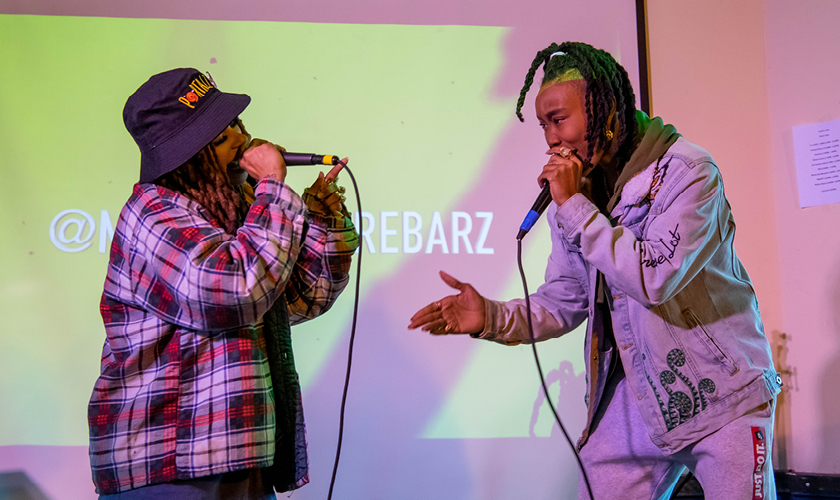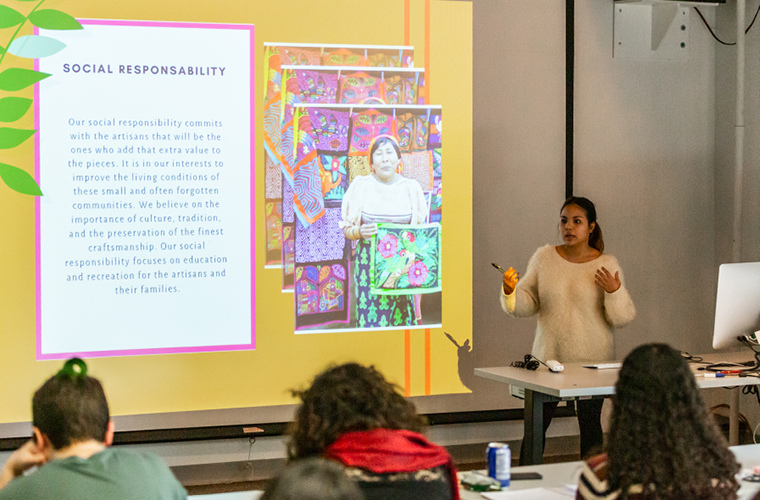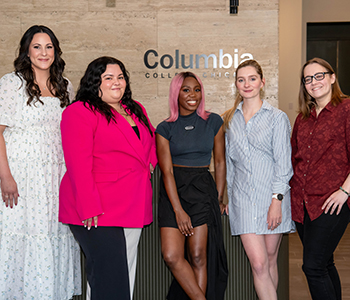
School of Business and EntrepreneurshipEntrepreneurship for Creatives Master's Degree
- MA

Ready to turn your creative vision into a thriving business? Columbia College Chicago's one-year graduate program in Entrepreneurship equips you with the skills and knowledge to develop your business idea into a successful venture. With a focus on the creative industries, this program is ideal for aspiring entrepreneurs in fields like art, design, fashion, film, games, music, performing arts, and media. You’ll gain practical skills in economic analysis, financial management, legal considerations, and marketing strategies, enabling you to secure venture funding by creating a comprehensive business plan and pitch deck.
Priority Application Deadline: March 7, 2025
Launching new ventures in the creative industries, including:
The Student Experience
Columbia College Chicago's one-year graduate program in entrepreneurship will help you develop your business idea into a creative venture. You'll gain practical entrepreneurial skills to lead and innovate in the creative industries. The program is a good fit for students who have entrepreneurial aspirations or interests in fields such as art, design, fashion, film, games, music, performing arts, and media.
The Entrepreneurship for Creatives master’s degree program includes several online courses online courses plus in-person meetings with your cohort and faculty. Instead of working on hypothetical projects, your assignments will focus on your actual business idea. This hands-on approach allows dedicated time to research market opportunities, conduct competitor analysis, assess risk, and analyze your target customer.
Your faculty mentors will guide you in developing a strategy to identify potential investors and the information they require for a successful pitch. You’ll receive valuable feedback from faculty, industry partners, and peers as you refine your proposal throughout the program.
Courses will cover essential topics that examine entrepreneurship's influence on the global economy. You’ll explore social impact and community engagement while bolstering your business acumen with core concepts such as marketing, intellectual property, contracts, accounting, and finance—all directly applicable to your creative venture.
At the end of the year, you will present your venture to a panel of accomplished entrepreneurs. They will provide constructive feedback and advice tailored to your specific business concept, equipping you with insights to move forward confidently.

Career Readiness
The program emphasizes hands-on learning through real-world projects. By working on your business idea and pitching it to experienced entrepreneurs, you'll gain practical insights that prepare you for the challenges of launching and managing a creative ventures. Graduates of the program have gone on to diverse careers in various sectors, including art, design, fashion, film, and media. You’ll be equipped to pursue entrepreneurial ventures, work within creative industries, or contribute to nonprofit organizations dedicated to the art
Participate in real-world projects and initiatives that provide a platform for applying your knowledge and skills. You'll leverage Columbia College Chicago’s extensive resources, including incubators, funding opportunities, and workshops designed to support entrepreneurs. Benefit from access to tools and guidance that can help turn your ideas into successful businesses. Conclude the program by presenting your venture to a panel of experienced entrepreneurs who will offer valuable advice and insights.
Engage with a network of industry professionals, entrepreneurs, and mentors throughout the program. Collaborative projects and networking events will help you establish valuable connections that can lead to future opportunities.
ALumni Spotlight

24 in 2024
"24 in 2024" recognizes alumni from Columbia College Chicago for their professional achievements beyond their academic journeys. Learn more.